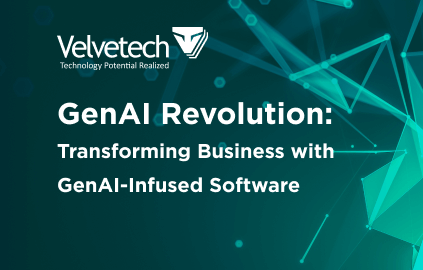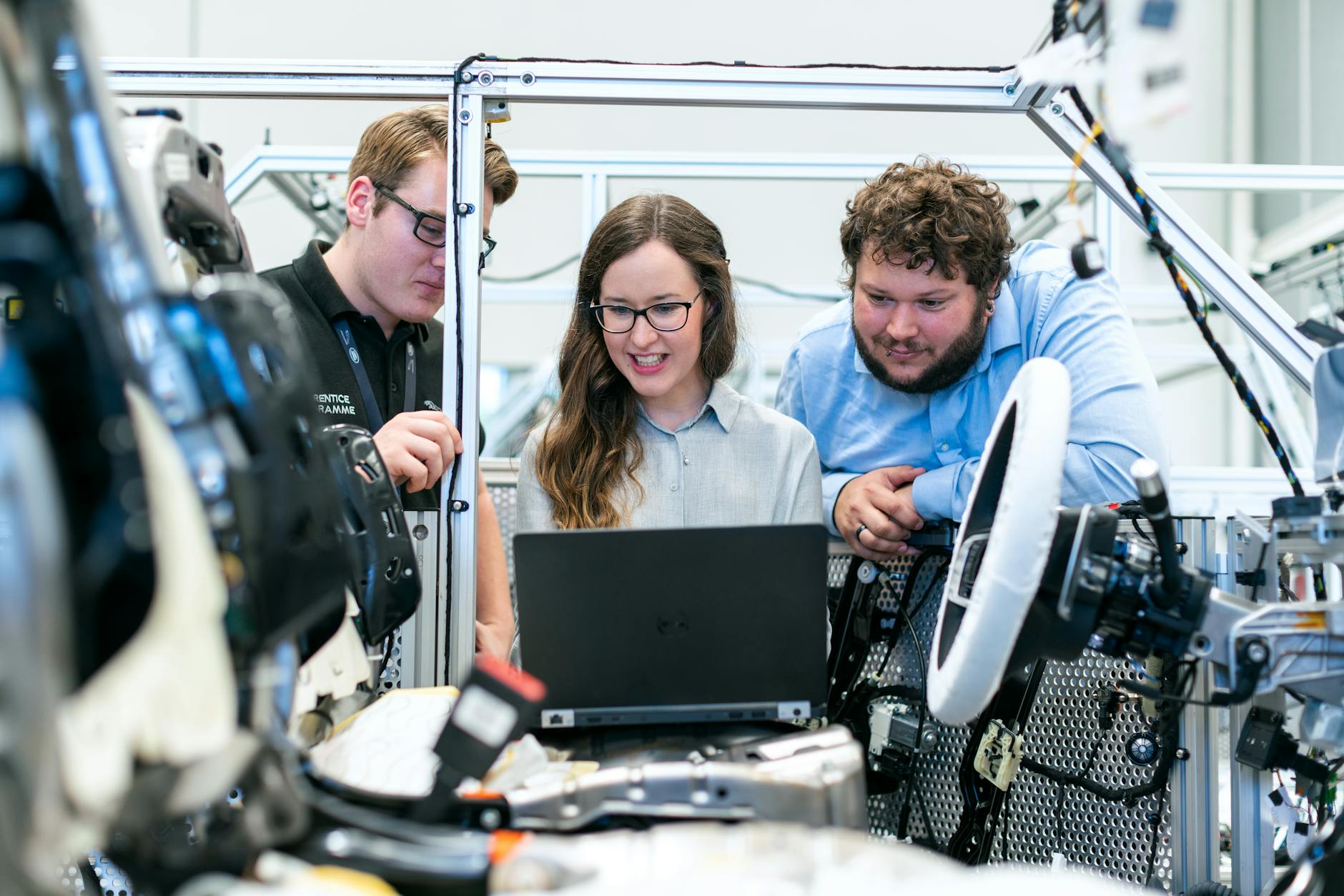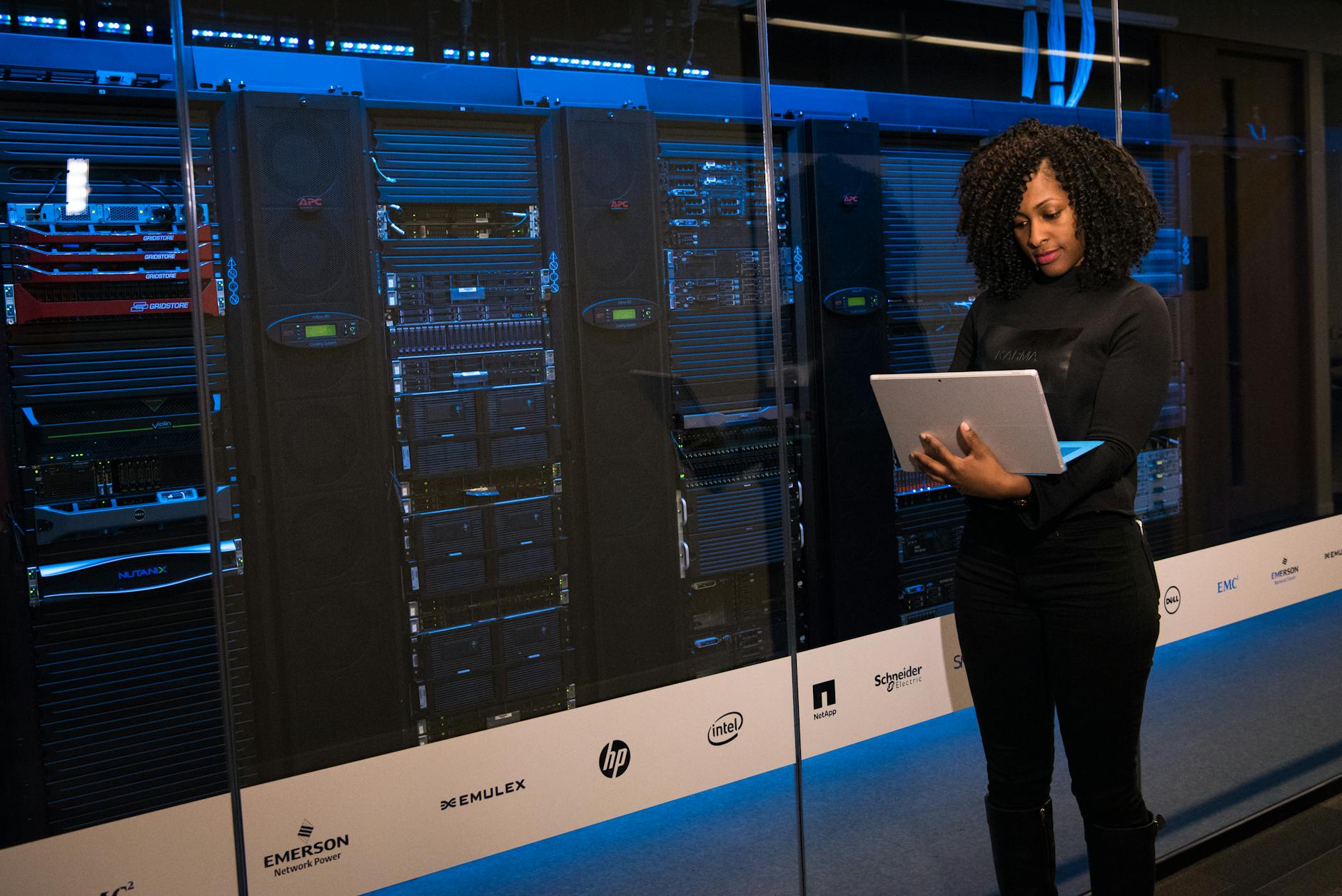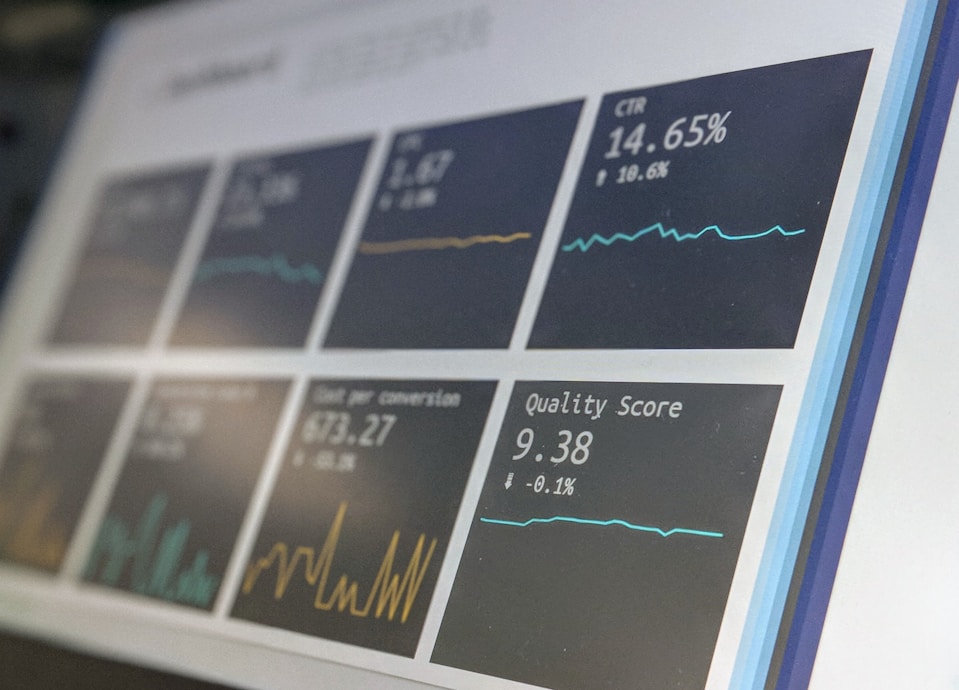Despite the tech industry being one of the most unpredictable ones out there, business leaders always try to look ahead and foresee what new developments will emerge in the coming year. Thus, helping them determine which innovations are worth the attention.
As 2025 is quickly approaching, we thought it’d be a good idea to go over the Information Technology trends in business that will be most prevalent next year. Of course, some will remain unchanged from previous seasons, but it’s still worth being aware of them so that you can focus on the right software development projects in the next months.
GenAI for Business
Watch our webinar to uncover how to integrate GenAI for improved productivity and decisions.
1. Siloed Data Integration
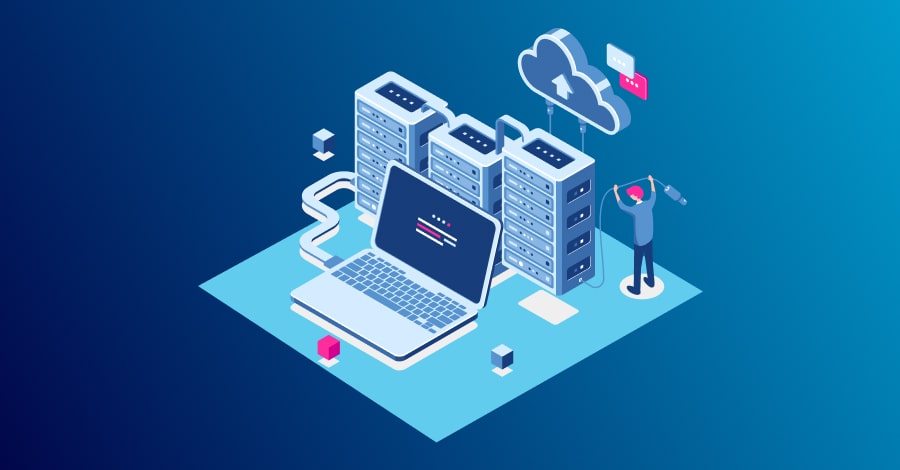
In the modern data-driven world, making decisions based on accurate information is pretty much non-negotiable for business leaders. After all, staying competitive is often rooted in relying on numbers and their ability to tell what is performing well and what isn’t.
In the last few years, organizations have come to embrace data analytics and started leveraging digital insights to stay informed on what’s going on within the core operations. However, data comes in various shapes and sizes. It may contain duplicate entries, outdated details, human errors, or, at times, be hard to access because of data silos.
Discover the Role of Data Analytics in Healthcare
In 2025, accessing information across the company’s multiple data silos will only get more difficult because of the increased volumes and sources of data. So, many organizations will choose to prioritize the integration of siloed data in order to bring distributed digital information together.
Moreover, modern developments like data fabric will come into the spotlight. If you’re unfamiliar with the term, data fabric is basically a data management architecture that optimizes distributed data and makes it available wherever it’s needed.
According to Gartner, this technology can reduce data management efforts by up to 70%. An impressive number no matter the industry you operate in.
2. Hyperautomation
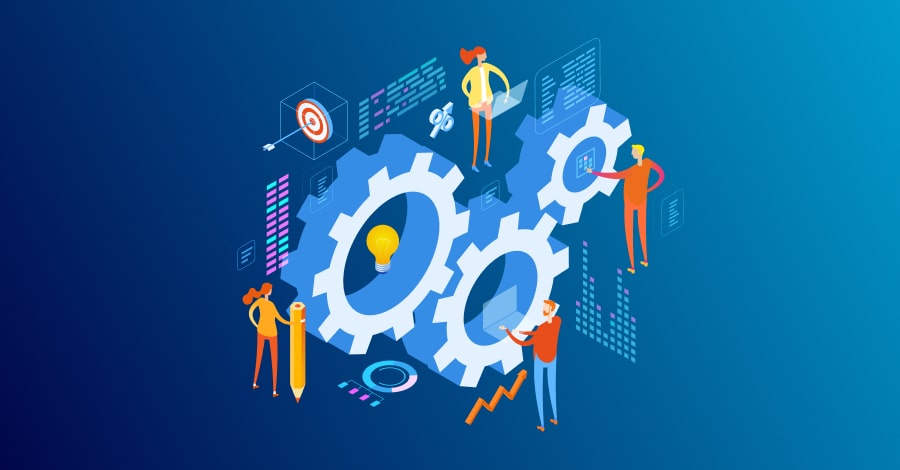
Another latest information technology trend in business is all about automating as many areas of an organization as possible at a rapid pace.
Companies that haven’t yet streamlined all of their processes will double down on hyperautomation, which basically uses artificial intelligence, machine learning, robotic process automation, low-code tools, and other technologies to minimize human involvement in various tasks.
Learn more about AI in Business
You may be wondering if there is any difference between automaton and hyperautomation. Well, there actually is. While automation typically occurs on a smaller scale and focuses on streamlining individual tasks, hyperautomation refers to the reliance on a multitude of tools and technologies to help facilitate the intelligent modernization of processes across a firm.
So, if you’re looking to improve efficiencies and elevate customer experiences while reducing costs — consider adding hyperautomation to your IT to-do list for 2025.
Read more about Hyperautomation Trend
3. Unique Customer Experience

Customer experience has always played a crucial role in the success of any organization. So, it’s only natural that in 2025, companies will continue to focus on delivering unique customer experiences and trying to differentiate through them.
For instance, in healthcare, patient engagement software will be gaining traction as more and more medical institutions look to improve service quality and create a collaborative patient-doctor environment.
Uncover why Patient Engagement Software Is a Must in Modern Healthcare
On the other hand, in areas like retail, experience-based technologies, such as augmented and virtual reality, will be used to make shopping more immersive and thus unique.
From engaging online interactions to experiential retail, where customers are offered entertainment and services beyond that of a traditional store — there’ll be no shortage of creative ideas for delivering a memorable experience.
4. Smart Contracts Commonization
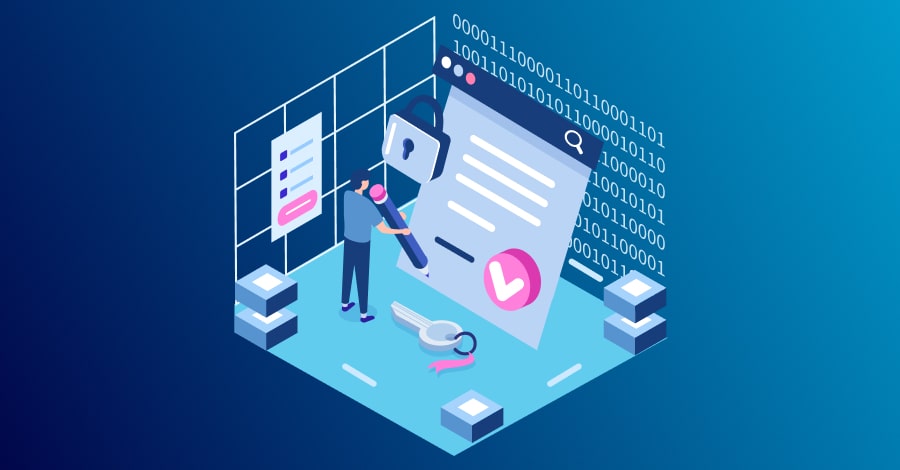
Organizations across all kinds of industries are often faced with having to deal with intermediaries. Naturally, these middlemen charge a commission and often take time to carry out their work. Thus, slowing down operations and increasing costs.
In 2025, companies will seek to avoid these hindrances and will start pursuing blockchain development services more diligently. Specifically, they will turn to smart contracts to eliminate middlemen and automate the execution of specific arrangements.
Find out the Key Things to Know About Smart Contracts
As a result, organizations across the world will begin to expect more transparency in business transactions, higher security, and reduced costs of operations. Hence, the inability to offer that may become a disadvantage even to the most successful firms.
5. Rise of Digital Twins
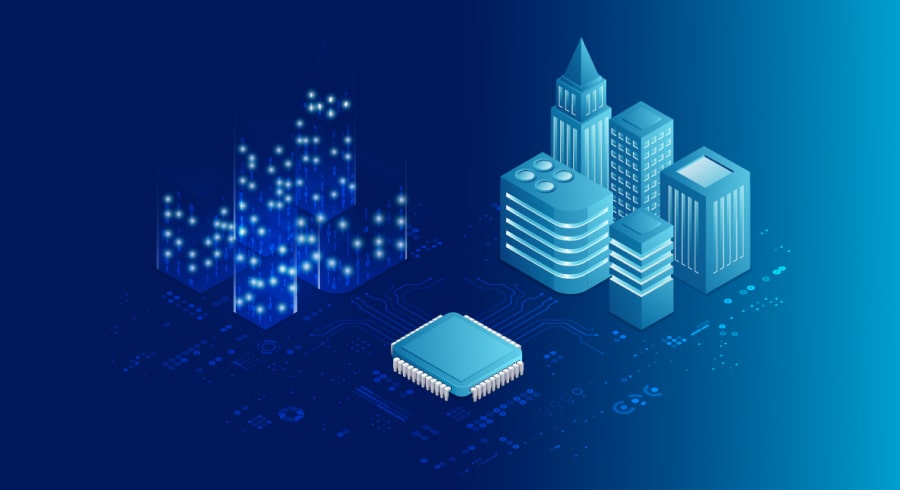
From logistics to automotive, the Internet of Things has already proliferated in a multitude of industries.
In 2025, however, the focus is likely to increase on Industrial IoT solutions as construction, manufacturing, and engineering companies look to enhance operations and boost efficiencies. Specifically, we suspect a rise in the use of the latest technological advancement — digital twins.
Digital twins are virtual models that reflect, with utmost accuracy, a specific physical object. Connected sensors on the physical item collect data on how it is functioning and transfer the information onto the digital copy. Thus, helping monitor performance, run simulations, and discover areas of improvement.
So, in the coming year, companies that are looking for immaculate physical asset visualization from afar, real-world scenario testing, and deeper insights into product performance will all be turning to IIoT and digital twins.
Find out how Velvetech Built an IIoT Solution for Anchor Installation
6. Mobile App Development

We won’t spend too much time on this 2025 technology trend as it has topped the lists of priorities for several years now. With the growing amount of mobile devices in the world and new applications hitting the market daily, there’s little surprise that companies will continue focusing on mobile app development in the coming year.
Whether consumer-facing or enterprise, businesses will keep improving their existing applications or start developing new ones to boost organizational growth. The key difference to previous years, though, may lie in the use of innovative technologies to improve solutions.
For instance, some may turn to artificial intelligence to make the app more competitive and unique. So, if that sounds appealing to you — consider investing in mobile app development this year.
Uncover how Velvetech Built a Medical Reference App for a Clinic
7. AI-Powered Cybersecurity Activation

As emerging technologies become more widespread and enormous volumes of data continue to be generated, cyberattacks will likely keep growing in volume and complexity. So, it’ll be more important than ever for security specialists to be a step ahead of potential threats.
To do so, AI cybersecurity solutions will have to become more prevalent in business. Thanks to their intelligent machine learning algorithms, malicious activity can be detected in advance and prevented before there is any real threat to an organization’s data.
So, if you believe that your company could benefit from improved levels of security, don’t hesitate to reach out to experts and get a personal consultation. After all, a good cybersecurity solution could end up saving you a lot of time and money in the long run.
8. Augmented Analytics
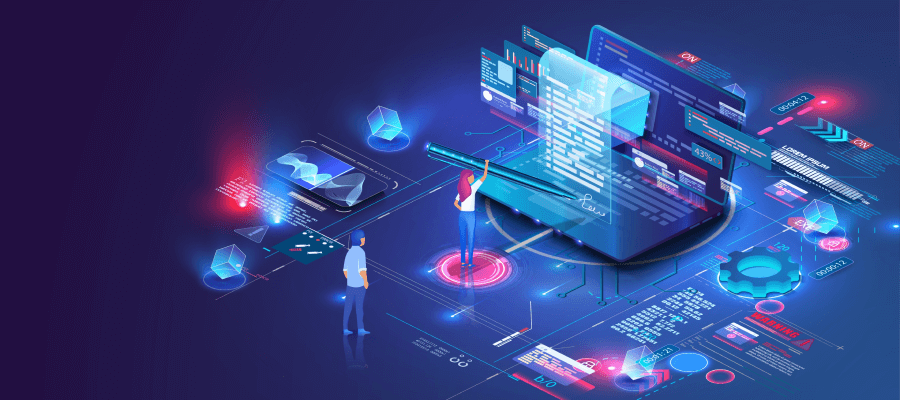
Another one of the recent advanced technologies that will stay top for many organizations is augmented analytics. It changes the way business leaders make decisions and brings business intelligence fueled by informed insights closer than ever before.
While traditional data analysis often requires specialized skills and a deep understanding of statistics, augmented analytics leverages AI and ML technologies to automate various aspects of the data analysis process. That includes data preparation, modeling, and interpretation.
With predictive and prescriptive analytics components on hand, companies can easily respond to changing market conditions, customer preferences, and internal operational needs. That being so, augmented analytics will remain a cornerstone of a data-driven culture that will fuel companies’ growth.
9. Web 3.0 and Metaverse
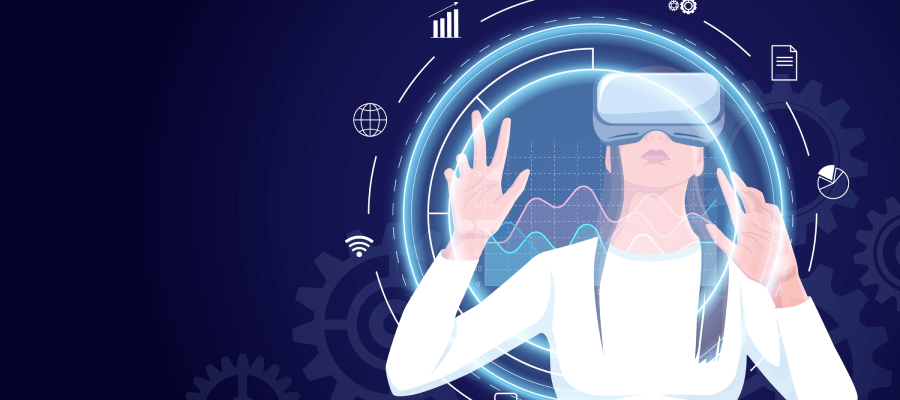
Though the terms Web 3.0 and Metaverse have been around for a while, they are both considered the latest technology trends in the software industry. Even if these two can be described independently, we’ve decided to cover them together as they have common elements and interconnections.
Web 3.0 is defined by blockchain technology, which enables smart contracts and decentralized app development. Thanks to these innovations, companies can rely on greater security, transparency, and trust in online transactions, which, as we said before, reduces the need for intermediaries.
Web 3.0 also empowers users to participate in peer-to-peer networks, engage in decentralized finance (DeFi), and contribute to the growth of the open-source, collaborative internet.
Learn more about the Role and Key Features of Web 3.0
Then we have the Metaverse, also impacted by blockchain technology, which appears to be a new trend for business. Combining augmented and virtual reality, AI, and blockchain, it has the potential to bring in new opportunities for advertising and marketing, enhanced customer engagement, collaborative workspaces, increased brand presence, global accessibility, and more.
10. SuperApps
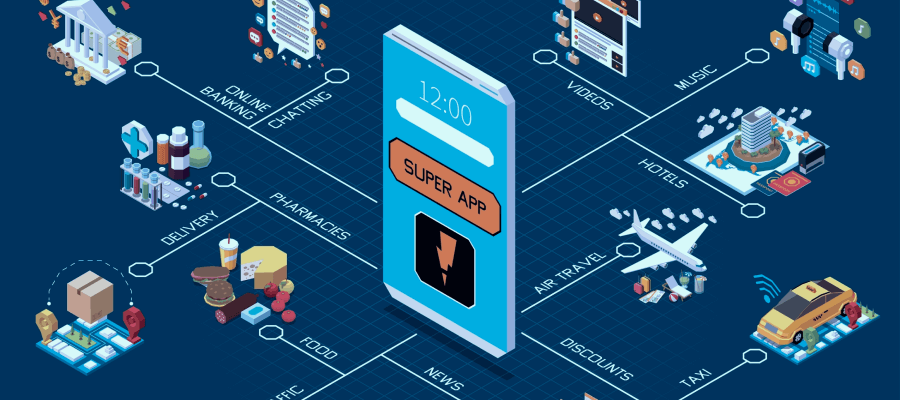
Next on our list of trends for 2025 is the concept of superapps. This technology innovation refers to a type of mobile application that offers a wide range of services and functions within a single platform. Superapps are designed to reduce the need to switch between multiple solutions while addressing daily user needs.
In the context of business, this IT trend is opening new doors for winning more users and gaining a market share in a new niche. Companies that decide to capitalize on superapps have great chances to stay ahead of the competition and gain profit. Like WeChat, Grab, and Revolut did.
11. Quantum Computing

While being one of the recent technological innovations and still finding its way through the nascency, quantum computing is already gaining traction. This groundbreaking trend is anticipated to disrupt industries by solving complex problems way faster than classical computers.
In particular, quantum computing can really advance and optimize operations and enhance efficiency in the supply chain, logistics, insurance, and finance fields. And in healthcare, pharmaceuticals, materials science, and energy, it has the potential to accelerate research and development processes.
12. Big Data Simulation
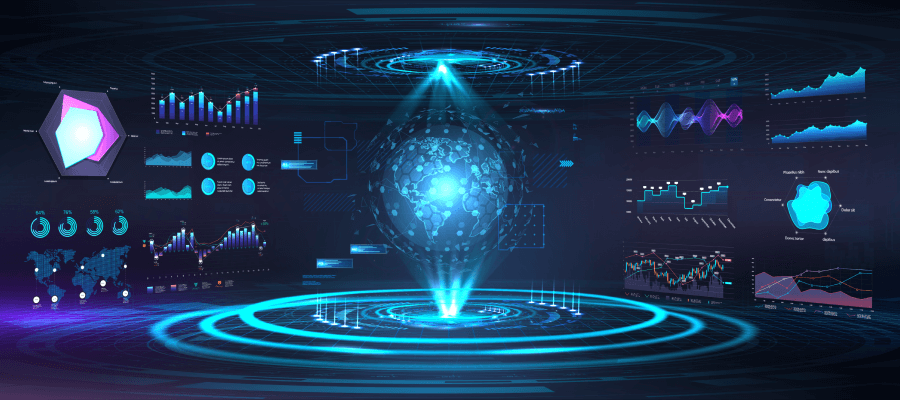
As we’ve already noted a few times, the data that companies handle will keep growing exponentially in the next years. No wonder that many of the future trends that we cover today are linked to technology that can facilitate data collection, processing, and especially getting insights.
That’s where big data simulation comes into play, with its capacity to experiment with data in a controlled environment and analyze large-scale systems that would be impractical or even impossible to study in the real world. It is achieved thanks to the duo of vast datasets and advanced computational techniques.
Businesses that turn to this trend acquire tools to uncover insights, validate hypotheses, and understand the consequences of various decisions. For example, in healthcare, these simulations can help optimize patient care workflows, predict disease outbreaks, and evaluate the impact of various treatments.
13. Headless eCommerce
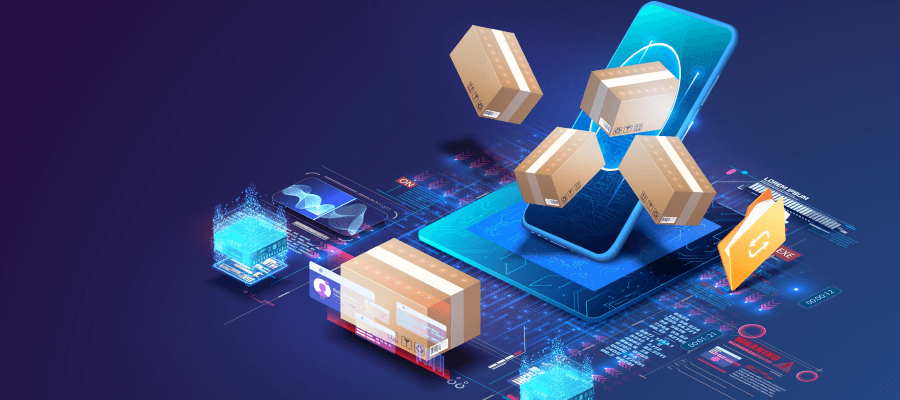
Customer experience plays a pivotal role in the eCommerce sector, and you can’t ignore the fact that customer expectations continue to become higher. To meet them, companies need to implement advanced solutions for greater flexibility and customization in delivering digital shopping experiences.
While headless eCommerce is only an emerging trend that we see both in the technology field and in business, it has a prosperous future. To make clear how it can help retail organizations, let’s explain how it works.
Headless technologies decouple the frontend part, or the user interface, from the backend with its underlying systems and data and connect them using APIs instead. As a result, it enables rapid development and deployment of eCommerce solutions across a wide range of devices and touchpoints, such as websites, mobile apps, voice assistants, and IoT devices.
Explore the Steps to Create a Successful Website
14. Sustainable Tech Solutions
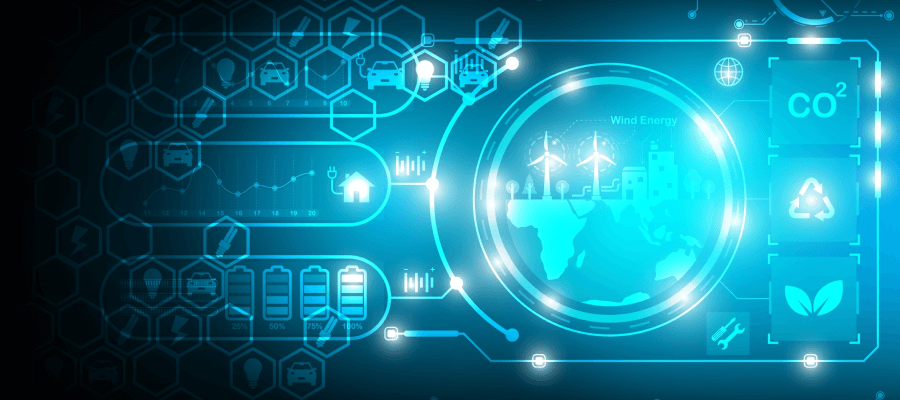
Another one of the current technological trends that we’d like to focus on today is sustainable tech solutions that keep affecting business. As the world is paying more and more attention to global warming and trying to reduce environmental footprints and conserve resources, clean energy technology will be a top priority for many companies.
Enterprises will embrace “green investments” into products and processes that contribute to environmental friendliness. Hopefully, in the near future, we’ll see a major shift in technology use toward sustainability since corporate giants like Tesla, Apple, Google, and Amazon have already taken action in that direction.
Read about How Industrial IoT Helps with Sustainability
15. Bioengineering
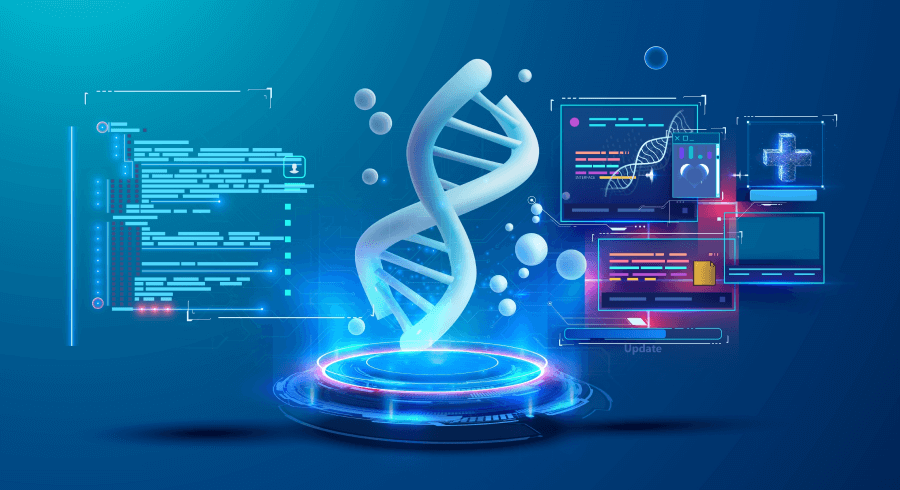
Bioengineering is expected to make remarkable strides in 2025, with advanced applications spanning healthcare, agriculture, and environmental sustainability, which we talked about above. This is definitely one of the most striking new technology trends that we’ll see gaining traction in the future.
For example, innovations in gene editing, cellular engineering, and synthetic biology are already paving the way for personalized healthcare. It’s especially valuable in areas like cancer treatment, regenerative medicine, and genetic disorders.
On the other hand, in agriculture, bioengineered crops are becoming more resilient and nutrient-rich, supporting food security amidst climate change. Moreover, with smart agtech in use, we now can hope to see a healthier planet with solutions that use modified organisms to help break down pollutants or capture carbon. Sounds like fiction? Well, that’s actually so real today.
16. Wide Cloud Adoption

Although cloud computing isn’t a new wave in technology and has been topping the list of trends for a few years, it continues to expand its influence across all sectors. In 2025, more organizations will adopt hybrid and multi-cloud strategies, benefitting from their scalability, flexibility, and cost-efficiency.
Cloud solutions and services enable businesses to manage data and applications with unprecedented ease. On top of that, cloud providers offer industry-focused tools tailored for sectors such as finance, healthcare, and manufacturing. All of that boosts the adoption of the cloud.
Find out the nuances of Cloud Computing in Healthcare
While the technology is already mature enough, it continues to evolve, integrating advancements like AI-driven automation and edge computing. They will further enhance the capacities to meet the evolving needs of global enterprises.
17. Eco-Friendly Transportation Tech

You might think that we’ve been repetitive, as we’ve already talked about sustainability tech. However, transportation technology deserves special attention as it advances rapidly to address environmental challenges and meet global carbon reduction goals.
In 2025, electric vehicles and hydrogen-powered transportation will become more accessible, with governments and companies ramping up infrastructure investments to support this shift. You’ve probably noticed that there are already more autonomous, energy-efficient public transportation options available. Electric buses and ride-sharing platforms are anticipated to reduce urban congestion and pollution.
When it comes to new technology we’ll see the rise of in the near future, air mobility is the one to mention. It’s set to become a significant part of eco-friendly transportation with advancements in electric vertical take-off and landing aircraft. We believe that urban air mobility will be a great option for short-distance travel, alleviating ground traffic congestion and reducing emissions.
18. Digital Ethics
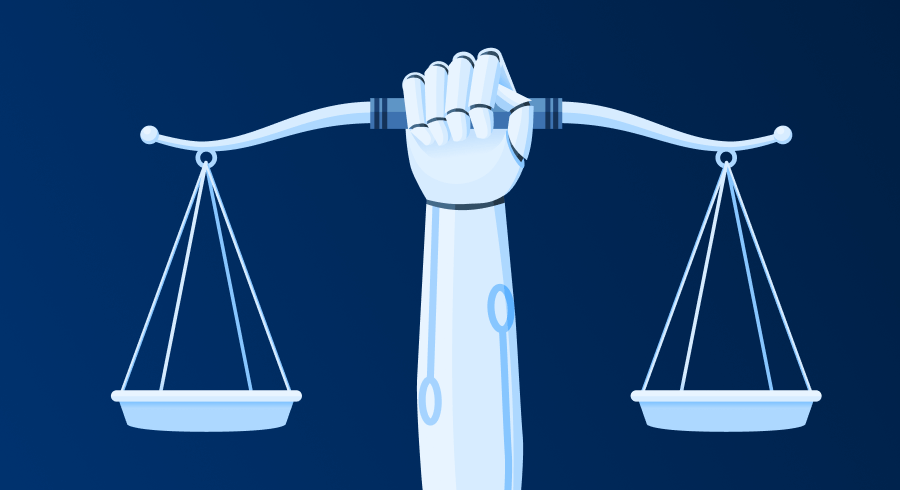
Finally, we can’t skip mentioning the importance of digital ethics, which is expected to be a prominent trend in 2025. You see, as technology becomes more deeply integrated into our lives, the demand for ethical standards around its use is becoming crucial. It will especially focus on responsible AI, data privacy, and fairness in digital systems.
That’s no wonder, of course. With AI algorithms influencing everything from hiring to healthcare, there is a growing need for transparency and accountability in how these technologies operate and impact society. That’s why privacy-enhancing technologies will be widely adopted, giving individuals greater control over their personal data.
Ready to Embrace New Trends in Technology?
As you can see, 2025 is promising to be an exciting year for IT and anyone choosing to embrace innovative technologies for improving their company. From hyperautomation to superapps and quantum computing, there’s no defficiency in current technology trends and areas for business leaders to consider investing in.
At Velvetech, we understand that a one-size-fits-all approach isn’t the right one for many organizations. Hence, we offer an extensive array of custom software development services in order to cater to the unique needs of every company.
So, if you’re looking to identify which IT areas should be your focus in the near future and are likely to bring the highest rewards — reach out to our team. We’ll be happy to discuss a potential collaboration.
